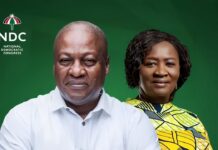
The President, Nana Addo Dankwa Akufo-Addo, has assured that based on lessons from the past, and the current economic successes, the government will work hard not to seek any assistance from the International Monetary Fund (IMF) in the future.
Once the country exited from the programme which ends this year, the President said past lessons should guide its footstep in order not to run into another macroeconomic difficulty which would require assistance from the fund again.
“I am hoping strongly that this will be the last time Ghana will have the recourse to go to the IMF for assistance,” President Akufo-Addo said during a two-day Ghana CEO Summit 2018 in Accra.
The President said the growth recorded after a year of fiscal discipline and innovative economic management had been remarkable.
He, however, asked successive governments to draw lessons from the trend in order not to run the country into macroeconomic difficulties in the future.
He stressed that the government would not relent in its quest to remain fiscally disciplined in the management of public finances in a move to sustain the gains made so far.
For this reason, the President noted that the country must live within its means if it wanted to grow its economy.
“As a government, if you want to be committed and disciplined in the management of the public finances of your country, it will be very unusual to find yourself in macroeconomic challenges which will require the assistance of external entities,” he added.
Prudent fiscal discipline
The President’s views, however, received a strong backing from the Resident Representative of IMF, Ms Natalia Koliadina, who urged the government to continue to adhere to prudent fiscal discipline in order to sustain the stability achieved so far.
That, she said, would help improve on the gains made over the past one year even outside the IMF-supported programmes.
Speaking at a panel discussion at the same event, the director asked the government to develop more means in order to reduce the country’s debt.
While commending the managers of the economy for reducing the debt to GDP rate to 60 per cent as at February 2018, she said the country’s public debt was still significant.
Ghana’s debt stock
Ms Koliadina said Ghana Beyond Aid would be difficult to achieve if Ghana’s debt stock was not controlled effectively.
“Last year was the first time that the government was able to record a primary surplus. The surplus allowed debt to GDP ratio to decline, so now debt is on a declining path. This is a major achievement, but of course it did not come without its cost.
IMF’s approval
The IMF approved Ghana’s request for a bailout programme to help stabilise the country’s economy in the first week of April 2015. Ghana under the programme received a lot of backlash from the ruling party, then in opposition, but it was expected to get US$918 million spread over three years following the board’s approval.
The release of the funds under the programme is underpinned by strengthened fiscal consolidation efforts that hinges on prudent public expenditure management, enhanced domestic revenue mobilisation, public sector reforms, with particular emphasis on staff rationalisation in the public service and better controlling the wage bill.
The IMF programme was originally expected to end in April 2018 but has now been extended to December this year and the country’s economy has also shown signs of recovery, as it grew by 8.5 per cent in 2017 compared to 3.7 per cent recorded in 2016.





























